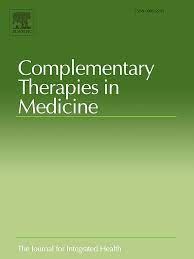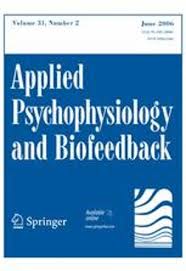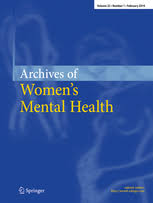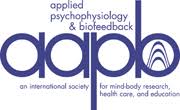Research Library
You can search for publications by selecting a category or keyword. All publications containing the selected category or keyword will be displayed below.
Categories
Keywords
Categories
Keywords
- Show all
- ADHD
- Anxiety/Panic
- Burnout
- Cancer
- Cardiovascular disease
- Chronic pain
- Cognitive function
- Cortisol/DHEA
- Costs
- Dementia
- Depressie
- Diabetes
- Global Coherence
- Hypertension
- Intuition & Consiousness
- Kids/Youth
- Leadership
- Meditation/Mindfulness
- Metabolic Syndrome
- Obesity/Eating disorder
- Pregnancy
- PTSD
- Resilience
- Schizophrenia
- Science HRV & Coherence
- Sleep quality & fatigue
- Social Coherence
- Stress
Heart rate variability biofeedback in chronic disease management: A systematic review

Background: Heart rate variability biofeedback (HRVB) is a non-pharmacological intervention used in the management of chronic diseases.
Method: A systematic search was performed according to eligibility criteria including adult chronic patients, HRVB as main treatment with or without control conditions, and psychophysiological outcomes as dependent variables.
Results: In total, 29 articles were included. Reported results showed the feasibility of HRVB in chronic patients without adverse effects.
Effect of Quick Coherence Technique on Psychophysiological Coherence, Heart Rate, Stress, Anxiety, Depression and Feeling State in Young Adults in India

HeartMath technology is an innovative technique to improving emotional mental health. A small-scale study was conducted to investigate the effect of quick coherence technique on psychophysiological coherence, stress, anxiety, depression and feeling state in young adults in India. Present study is in line with the past research done by S.D.Edwards (2016) on ‘Influence of Heartmath Quick Coherence Technique on Psychophysiological Coherence and Feeling States’. Six postgraduate students who complained of stress, anxiety and depression were
read more...Neurophysiological Approach by Self-Control of Your Stress-Related Autonomic Nervous System with Depression, Stress and Anxiety Patients.

Abstract: Background: Heart Rate Variability Biofeedback (HRVB) is a treatment in which patients learn self-regulation of a physiological dysregulated vagal nerve function. While the therapeutic approach of HRVB is promising for a variety of disorders, it has not yet been regularly offered in a mental health treatment setting. Aim: To provide a systematic review about the efficacy of HRV-Biofeedback in treatment of anxiety, depression, and stress related disorders. Method: Systematic review in PubMed and Web of Science
read more...A meta-analysis on heart rate variability biofeedback and depressive symptoms.

Heart rate variability biofeedback (HRVB) has been used for a number of years to treat depressive symptoms, a common mental health issue, which is often comorbid with other psychopathological and medical conditions. The aim of the present meta-analysis is to test whether and to what extent HRVB is effective in reducing depressive symptoms in adult patients. We conducted a literature search on Pubmed, ProQuest, Ovid PsycInfo, and Embase up to October 2020, and identified 721 studies.
read more...Heart Rate Variability Biofeedback Improves Emotional and Physical Health and Performance: A Systematic Review and Meta Analysis

We performed a systematic and meta analytic review of heart rate variability biofeedback (HRVB) for various symptoms and human functioning. We analyzed all problems addressed by HRVB and all outcome measures in all studies, whether or not relevant to the studied population, among randomly controlled studies. Targets included various biological and psy-chological problems and issues with athletic, cognitive, and artistic performance. Our initial review yielded 1868 papers, from which 58 met inclusion criteria. A significant small to moderate effect size was found favoring HRVB, which does not differ from that of other effective treatments. With
read more...Heart Rate Variability, Health and Well-Being: A Systems Perspective

The development of a new tool, analytic device, or approach frequently facilitates rapid growth in scientific understanding, although the process is seldom linear. The study of heart rate variability (HRV) defined as the extent to which beat-to-beat variation in heart rate varies, is a rapidly maturing paradigm that integrates health and wellness observations across a wide variety of biomedical and psychosocial phenomena and illustrates this nonlinear path of development. The utility of HRV as an analytic and interventive technique goes far beyond its original application as a robust predictor of sudden cardiac death. This Research Topic aims to provide a conceptual
read more...Biofeedback Intervention for Stress, Anxiety, and Depression among Graduate Students in Public Health Nursing

Globally, graduate students have been found to have high prevalence of mental health problems. With increasing severity of mental health problems on university campuses and limited resources for mental health treatment, alternative interventions are needed.This study investigated the use of biofeedback training to help reduce symptoms of stress, anxiety, and depression. A sample of 60 graduate students in public health nursing was randomly assigned to either the biofeedback intervention or the control group. Results indicated that biofeedback
read more...A pilot study of heart rate variability biofeedback therapy in the treatment of perinatal depression

Heart rate variability biofeedback (HRVB) therapy may be useful in treating the prominent anxiety features of perinatal depression. We investigated the use of this non-pharmacologic therapy among women hospitalized with severe perinatal depression. Three questionnaires, the StateTrait Anxiety Inventory (STAI), Warwick–Edinburgh Mental Well-Being Scale, and Linear Analog Self Assessment,were administered to 15 women in a specialized inpatient perinatal psychiatry unit. Participants were also contacted by telephone after discharge
read more...Heart Rate Variability Biofeedback for Major Depression

Heart rate variability for the treatment of major depression is a novel, alternative approach that can offer symptom reduction with minimal-to-no noxious side effects. The following material will illustrate some of the work being conducted at our laboratory to demonstrate the efficacy of heart rate variability. Namely, results will be presented regarding our published work on an initial open-label study and subsequent results of a small, unfinished randomized controlled trial. Autonomic nervous system (ANS) dysfunction
read more...